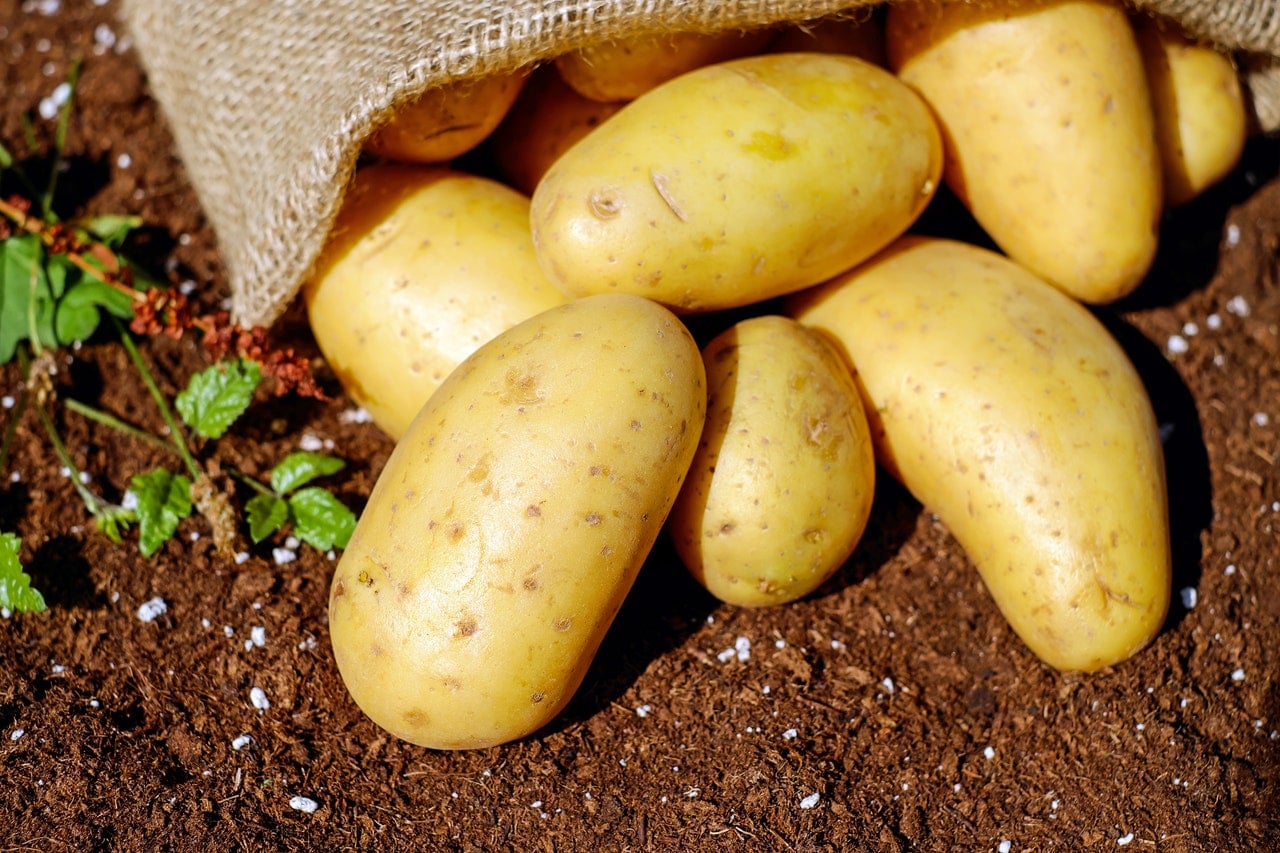Can dogs have potatoes? This is the big question that many dog owners have. Potatoes are a staple, they’re cheap, and they are also abundant throughout the United States and other countries. We take a closer look at potatoes and other vegetables to determine if they are safe for canine consumption.
Can A Potato Kill a Dog?
Yes. There is evidence that the unripe ones, the still-green potatoes, can be a health hazard to canines. Green on unripe potatoes can be toxic to dogs, so don’t feed these as well. Raw potatoes should also be stricken off the list of safe vegetables for dogs. Raw potatoes can give your dog the compound solanine, which can cause digestive and nervous issues. Cooking potatoes removes most of the solanine in potatoes, which makes the vegetable safer for canine consumption.
However, the AKC advises moderation in giving dogs potatoes. If you want to feed your pet potatoes, it should have been cooked thoroughly before feeding. Broiling and baking are highly recommended.
What about French fries and fried potatoes in general? While the cooking method is acceptable, the extra oil absorbed by the potatoes is unhealthy for dogs. Giving your dog higher quantities of carbohydrates and fat can also trigger weight gain, and the weight gain can have catastrophic medical consequences later on.
We know that dog owners love to give treats, and for the most part, vegetables are fine as long as they are given with the dog’s health and welfare in mind. Any food can cause dogs to become overweight, so watch the quantity of food that you give your dogs.
Can Dogs Eat Potatoes? Can dogs eat raw potatoes?
Raw potatoes are considered harmful and potentially deadly to dogs. The compound solanine, which is found in nightshade plants like the potato and the tomato, is the toxin that we must avoid by preventing our dogs from eating raw and unripe potatoes.
Always remember that potatoes with still-green parts have the highest solanine concentrations, and they are deadlier to dogs. Solanine is a type of glycoalkaloid that can cause toxicity to small mammals. So if you have cats at home, they are also at risk of being poisoned if you have raw potatoes and green potatoes lying about.
In case your dog or cat eats some raw potatoes, watch for any reaction first. Small mammals still need to ingest a relatively high quantity of solanine to exhibit the worst side effects.
Watch for symptoms like diarrhea and other forms of gastrointestinal issues, vomiting, lethargic, muscular weakness, and mental confusion. Some dogs also exhibit blood loss, cardiac anomalies, appetite loss, loss of urine and kidney function, drooling, motor imbalance, rashes, tongue inflammation, muscular rigidity, and tremors. You can monitor the behavior and movement of the animal to check for possible signs of being poisoned.
If you believe your pet is the victim of poison from raw potatoes or tomatoes, immediately call your vet.
Are Cooked Potatoes Good for Dogs? Can dogs eat baked potatoes? Can dogs eat cooked potatoes?
It is alright to feed small amounts of baked or cooked potatoes to dogs. If you want better options, you can also give your dog sweet potatoes instead.
However, keep in mind that a recent USDA report indicates a steadily growing trend of dogs developing DCM or dilated cardiomyopathy by eating brands of pet food made with potatoes, lentils, legumes, and other common vegetable ingredients. What happens is that dogs who develop DCM have weaker hearts that struggle to pump blood normally.
What results is also the heart’s enlargement, which can be fatal to dogs (incredibly weak and senior ones). Always keep in mind that dogs get their nutrients primarily from animal proteins, so if they are being fed mostly vegetables, even inadvertently, through your choice of dog food, there will be a lot of medical issues later on.
It is essential that we only provide dogs the right kinds of food at all times. This applies most especially to people who have older dogs at home. Older dogs have much more sensitive digestive tracts, and they don’t take well to fatty or carbohydrate-rich foods at all.
What Vegetables Can Dogs Eat?
While dogs hail from ancestry that is exclusively carnivorous, this doesn’t mean that we cannot supplement their diet with some vegetables. According to veterinary experts, vegetables should be considered supplements to a dog’s diet. Supplementation should be limited to a maximum of ten percent of the entire diet. The rest should be animal proteins – full stop.
What kinds of vegetables can be supportive of a dog’s health?
- Asparagus – Asparagus helps add variety to a dog’s meal and also boosts the vitamins and minerals. Just two ounces of steamed asparagus is sufficient for one meal.
- Broccoli – Broccoli has immunity-building nutrients and can help senior dogs suffering from arthritis, too. A bit of broccoli can help fight off gum disease and tooth issues as plaque is naturally removed when dogs bite and chew on broccoli.
- Carrots – Small quantities of raw carrots are sufficient if you slice them thinly. Dogs should have no issues digesting carrots.
However, if they are coming undigested, you must serve carrots cooked later on and still thinned out to make it easier to digest them. Carrots have compounds that naturally ease dogs’ tension, and they’re fun to eat, too. - Green beans – Green beans may be used to help reduce a canine’s weight. If a dog is already overweight, you may cut out five percent of your dog’s usual meal and replace it with cooked green beans. Green beans are naturally rich in dietary fiber, and the extra fiber can help dogs move their stools properly, just like humans.

